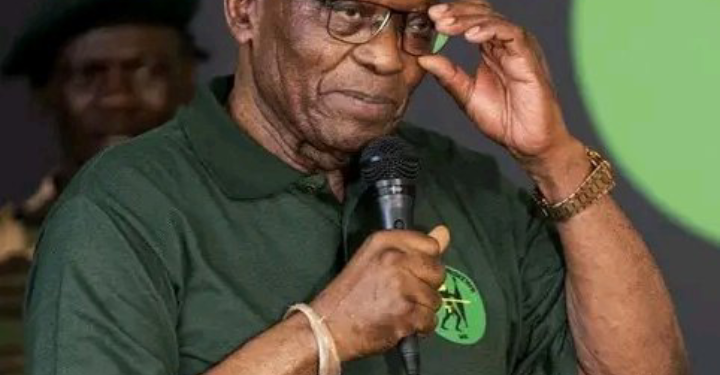Former South African President Jacob Zuma’s bid for a political comeback faced a significant setback as the MK Party announced that he does not meet the eligibility criteria for inclusion on its candidate list due to his criminal record. Zuma, who served as the country’s president from 2009 to 2018, has been embroiled in a series of legal battles, culminating in a conviction for contempt of court last year.
The MK Party, a political entity that emerged from the Umkhonto we Sizwe Military Veterans Association, made the announcement following a thorough vetting process of potential candidates for the upcoming elections. According to party officials, Zuma’s criminal record renders him ineligible to stand as a candidate under the party’s guidelines.
Zuma’s legal woes have been well-documented, with his conviction for contempt of court stemming from his refusal to appear before a commission investigating corruption allegations during his tenure as president. Despite facing mounting legal challenges, Zuma has maintained a vocal presence in South African politics, often rallying support from his loyal base of followers.
The decision by the MK Party to exclude Zuma from its candidate list underscores the growing scrutiny surrounding his political ambitions. While Zuma still commands influence within certain segments of the population, his tarnished reputation and legal troubles have increasingly isolated him from mainstream political circles.
The MK Party, which advocates for the interests of military veterans and their families, emphasized the importance of upholding integrity and accountability within its ranks. Party leaders stressed that candidates must adhere to strict ethical standards and demonstrate a commitment to serving the public interest.
Zuma’s exclusion from the MK Party’s candidate list marks a significant setback for the former president’s political aspirations. With the party gearing up for the upcoming elections, Zuma’s absence from the roster of candidates represents a notable development in South African politics.
Observers speculate that Zuma may explore alternative avenues to remain involved in the political landscape, despite his disqualification from the MK Party. However, his ability to rally support and navigate the legal challenges ahead remains uncertain.
As South Africa prepares for a pivotal election cycle, the exclusion of Jacob Zuma from the MK Party’s candidate list underscores the complex intersection of politics, legality, and accountability in the country’s evolving democratic landscape.






















